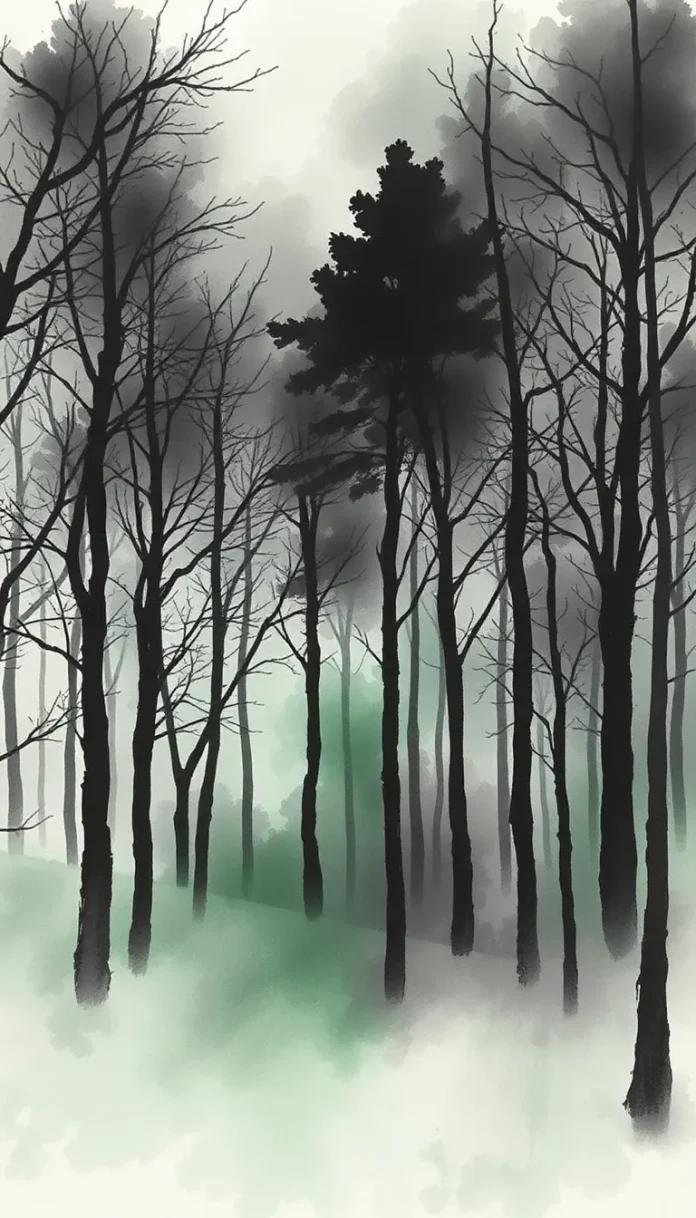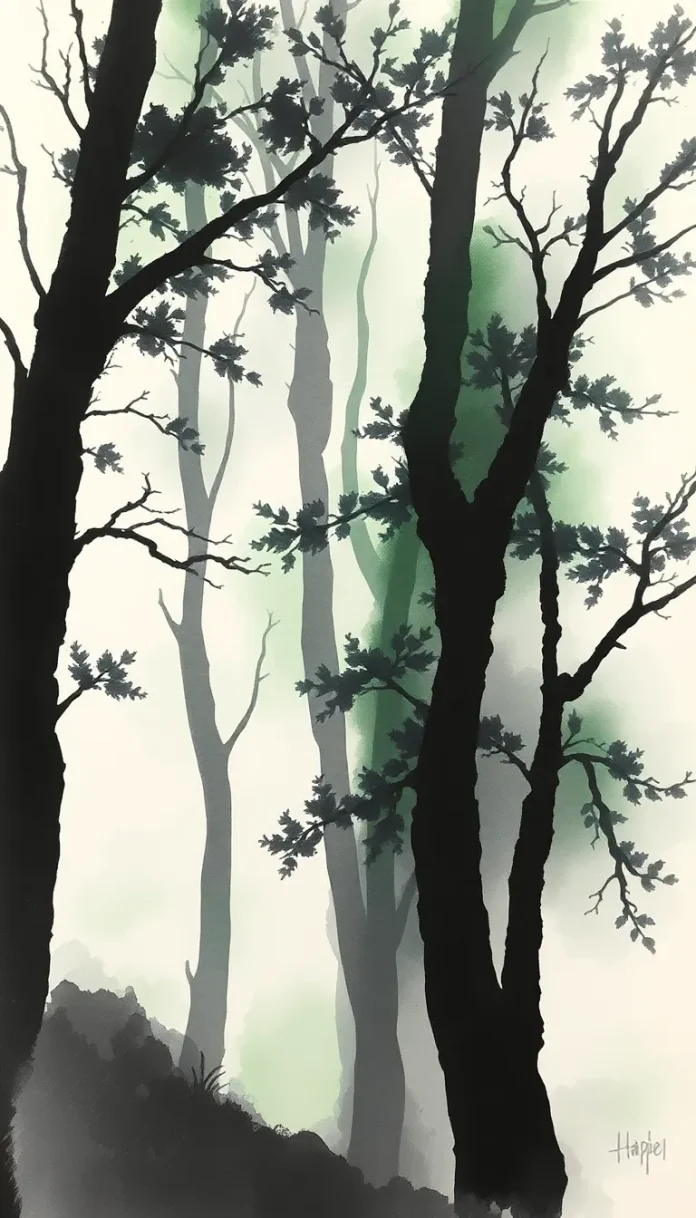The Bard’s Last Stanza
A youth with quill and parchment came, his spirit bruised and bowed.
The temple’s arch, moss-crowned and grim, loomed silent in the mist,
Its stones imbued with whispers old, by time’s cold hand unkissed.
Young Alaric, the poets named him—though fame he ne’er desired—
His verses bloomed like wounds unhealed, by sorrow’s venom fired.
A curse, they claimed, had marked his birth, a blight upon his rhyme,
For every stanza forged in joy soon twisted to a crime.
Through corridors where echoes slept, he traced the ancient script,
Each glyph a ghost of lives long lost, in marble crypts encrypted.
A breath, a sigh, the air grew dense—a presence stirred the gloom,
As though the walls themselves conspired to chant his mortal doom.
“Who treads where gods and martyrs tread?” a voice like fractured glass
Resounded through the vaulted dark. He froze, yet dared to pass.
“A wretch who seeks what light remains,” he called, his tone austere,
“To barter pain for purer fire, or perish seeking here.”
Then lo! A flame, cerulean-bright, engulfed the central nave,
And from its core emerged a form—half phantom, half engrave.
A woman’s face, yet not of flesh, but starlight’s fleeting trace,
Her eyes twin voids where galaxies had fled their mortal grace.
“I am the Keeper of the Veil,” she intoned, her words a knell,
“The scribe of fates no mortal hand may break or yet compel.
What offering, ephemeral one, dare you lay at my feet?
For only blood and breath entwined may make the curse retreat.”
He knelt, the weight of centuries compressing his frail frame,
And drew a scroll from ragged cloak—each line a searing flame.
“These verses, wrought from midnight’s heart, I consecrate to thee.
Take ink, take page, take all I’ve penned, but grant my soul reprieve.”
The specter laughed—a sound like ice on tombs of long-dead kings—
“Your art is but a hollow plea, a child’s bauble on strings.
The curse you bear demands a price no parchment can appease:
To break its chains, your voice must die, your song find endless cease.”
A tremor seized the trembling earth; the temple’s bones replied,
As Alaric, with fists clenched tight, met doom with poet’s pride.
“Then take the tongue that shaped my grief, the hands that carved each line,
But let one final stanza live—a testament divine.”
The Keeper’s gaze, relentless, cold, dissected hope from plea,
Yet in her palm, a dagger gleamed—obsidian and free.
“Strike here,” she said, her finger pressed where pulse and shadow merge,
“And spill the ink that fuels your curse, to quench the eternal dirge.”
He grasped the blade, its edge a hymn of sacrifice and night,
And plunged it deep where art and soul commingled in their fight.
No cry escaped his lips, now sealed by fate’s unyielding clamp,
But from the wound there surged a flood—not blood, but ink-damp camp.
The temple drank his essence dark, each droplet a lost verse,
While Alaric, fading, watched his life disperse—a poet’s hearse.
The Keeper sighed, her task complete, yet in her hollow breast
A flicker stirred—regret?—as she addressed the silent west:
“Thus ends the tale of one who sought to master sorrow’s toll,
Who gave his voice to break the curse, yet damned his flickering soul.
Let travelers mark this crumbling fane, where muse and martyr meet:
The cost of art’s immortal flame is ash beneath its heat.”
Now scholars parse his final work—a page stained black and bare,
Its words erased, their meaning veiled, a riddle none declare.
But when the moon hangs low and thin, some claim they hear a sigh
That threads through temple stones, a hymn too vast for mortal sky—
The ghost of verse no world may hold, unsung, yet never gone,
A poet’s elegy to dawn extinguished ere its dawn.


